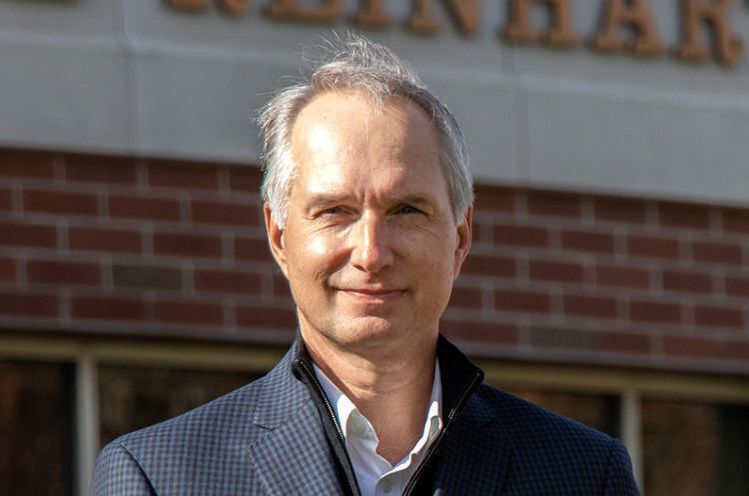Richard Kyte: Effective altruism offers promise, pitfalls
Effective altruism is a movement dedicated to helping others to the fullest extent possible. Most of its attention has been on finding the best evidence-based ways to help those whose lives are threatened by disease, hunger or environmental disaster.
Sam Bankman-Fried brought a great deal of positive attention, not to mention money, to EA over the past few years. It remains to be seen whether the damage done by the collapse of FTX, the cryptocurrency exchange he founded, destroys the movement or proves to be a temporary setback.
I’ve never been especially interested in EA myself, chiefly because I didn’t see it as adding anything radically new or compelling to the centuries old question of how to live a good life.
What makes EA different and interesting is the context in which it has arisen.
First, many relatively young people today have a great deal of wealth, much of it acquired in the high-tech world. Second, internet forums allow them to come together in focused conversation with like-minded people from around the world. Third, their high level of training and familiarity with computers allow them to use complex statistical analyses to evaluate competing scenarios and outcomes. In short, EA is a product of incredible advances in wealth, technology and education.
In the weeks since the failure of FTX there has been a great deal of criticism of EA, focused primarily on the ways Bankman-Fried used his wealth to influence funding priorities. Critics have denounced the hypocrisy of EA and its lack of basic ethical constraints, such as transparency and accountability.
But the fact that Bankman-Fried is a prominent figure does not make him representative of the movement. The truth is, it’s hard to find any criticism of EA that isn’t already debated more thoroughly and with more intensity inside the movement itself. That is what I find most admirable about EA and the people who are attracted to it — they are nothing if not morally serious.
On an EA forum, one will find passionate and nuanced debates regarding the relative merits of short-term vs. long-term investments, whether it is better to invest in a sure thing with modest benefits or a risky project with potentially huge benefits, or whether it is better to work in a field that helps people directly or find a job that pays more in order to use one’s extra earnings to support good causes.
These are all worthwhile discussions to have. Living an ethically responsible life is difficult, and the best way to do it is by being in regular conversation with people who are sincere, thoughtful and encouraging.
But the great weakness of EA is due to the fact that its adherents tend to have fairly loose ties to their local communities and eschew traditional social networks, such as churches, synagogues and service clubs. On the whole, they have broad concerns but shallow roots.
The result is that EA has a bias toward action at a distance. Those who fund the various projects supported by EA tend to be geographically, temporally and emotionally removed from their beneficiaries. And the more removed one is from the object of one’s action, the more likely it is to have unintended and unforeseen results.
A couple years ago I met an engineer who had been building wells for villages in Africa. His goal was to save lives by providing a ready supply of clean water. An added benefit would be that many girls who had to spend their days carrying water from distant sources would be able to go to school instead.
When the engineer returned a year later, he found the situation very different from what he expected. The women of the villages were angry with him. The new wells were working perfectly, but that meant they only had a few minutes to go outside their houses and socialize with other women instead of spending hours walking side-by-side and talking to one another as they used to do. Now they spent most of their days alone inside their homes.
This story highlights the real weakness of EA, which is that it amplifies the things our society is already really good at while overlooking the big thing we are getting worse at, namely social connection. As a whole, human beings today are quite effective at identifying, diagnosing and finding solutions to suffering. We have made incredible progress over the past 100 years curing diseases, reducing child mortality, lowering poverty levels and increasing life expectancy. But we are rapidly becoming socially fragmented, which leads not only to more loneliness and despair but also declining trust, which threatens to undermine much of the progress we have made.
The biggest challenges the world faces today are not economic or technological, but social.
I am grateful that there are many bright, tech-savvy people committed to reducing the many causes of suffering in the world. But I also worry that too direct a focus on problem-solving can lead us all to forget that responding effectively to large problems requires social trust. And that requires a steady, personal commitment to relationship building.
The most important lesson we should take from the fall of FTX is that there is no shortcut to an ethical life. There is no way to live ethically without belonging to a community of mutual accountability, a group of people who share a commitment to the common good and who are responsible to and for one another.
You cannot effectively love your neighbor without knowing your neighbor.

